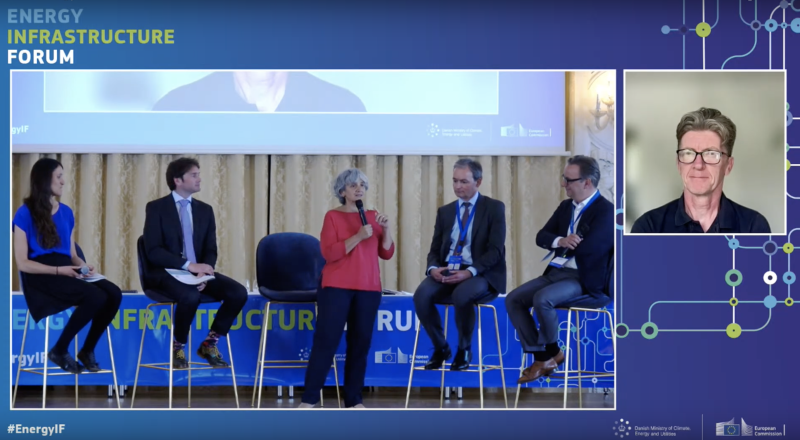The 9th Energy Infrastructure Forum
On 12-13 June 2023, the European Commission in cooperation with the Danish Ministry of Climate, Energy and Utilities organized the 9th Energy Infrastructure Forum. The event brought together important actors within the energy sector, including EU representatives, transmission system operators (TSOs), project developers, energy regulators, civil society and NGOs. Further information about the event can be found here.
The Public Engagement in Energy Infrastructure Task was present at the Forum and co-organized the interactive session “The value of working together for successful stakeholder engagement in the planning and implementation of energy infrastructure projects”. This session allowed the team to gather expertise from relevant actors in the sector, as well as to collect insights, which fed into the Tasks’ research process.
Main takeaways

The public engagement interactive session was led by Antonella Battaglini, CEO of the Renewables Grid Initiative (RGI), one of the Task’s leading organizations. During the session, Prof. Patrick Devine-Wright, one of the main scientists on public engagement within energy projects, opened the session, presenting important aspects of public engagement in energy infrastructure development as viewed by the latest research.
Afterwards, representatives of both the EU Agency for the Cooperation of Energy Regulators (ACER) and the European Commission’s Directorate-General for Energy joined Prof. Devine-Wright in an open debate with participants of the Forum present in the room.
Throughout the discussion, the session echoed key messages of the literature currently reviewed within the Task. Specifically, the discussion revealed the importance of involving stakeholders in participatory processes in the early stages of the process. This includes phases of determining national energy policy and the need for infrastructure, to stages related to the direct implementation on the ground.
Aside from that, a strong collaboration between different actors, sectors and technologies within the energy system was identified as necessary to enable infrastructure development and to advance the energy transition.
Lastly, the Infrastructure Forum’s session highlighted a case-by-case analysis, as there is no “one-size-fits-all” solution and stakeholder engagement must be tailored and contextualized to the local conditions. However, identified principles such as trust, transparency, inclusivity, and early communication should guide meaningful engagement processes.
The interactive session recording can be accessed via DG Energy’s YouTube Channel.

